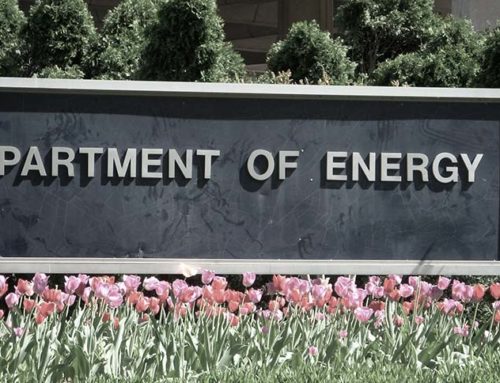While many people are distracted by the machinations surrounding tax reform, the House Republican leadership released a draft of a full government Continuing Resolution through Jan. 19, 2018.
Unlike the rest of the federal government, the draft legislation includes Pentagon spending for the rest of fiscal 2018. So unlike the rest of the government agencies, if this draft is eventually signed into law, the Pentagon will not only know their full-year funding level, but also avoid the possibility of a shutdown on the Jan. 20.
In addition to this exalted status, the Pentagon is also one of just two agencies to have a special Overseas Contingency Operations (OCO) account that is off budget and therefore doesn’t count against the caps laid out in the Budget Control Act of 2011.
My organization has been calling the OCO account a slush fund for years. There is an overall lack of accountability and oversight of the OCO monies that, thankfully, doesn’t exist in most other federal spending. At Taxpayers for Common Sense we gave then-House member Mick Mulvaney, now the director of the Office of Management and Budget, our “Mr. Smith Goes to Washington Award” in part because of his actions to instill greater rigor in OCO spending.
A close reading of the legislative language in the Continuing Resolution reveals that the House Appropriations Committee proposed yet another slush fund for the Pentagon: The National Defense Restoration Fund.
This new fund would give great discretionary authority to the secretary of Defense to spend more than $28 billion dollars with just 30 days notice to Congress.
For comparison, the Trump administration requested $28 billion in fiscal 2018 for the entire Department of Energy. In this case, Congress is proposing an equal amount of funding to be used in surprisingly non-specific ways.
There are few restrictions on how the secretary may spend it. The money is only available for “programs, projects and activities necessary to implement the 2018 National Defense Strategy.” And while we have often argued that strategy must shape the Pentagon’s funding choices, this language has holes large enough for the secretary to drive an M9 Armored Combat Earthmover through it.
The secretary of Defense must give the Congress 30 days notice of his intent to spend the money and submit a proposed allocation plan including a justification of the use of the funds and a description of how the expense will “implement the strategy.” The language also states the secretary cannot spend the money on anything otherwise specifically limited or denied by the Continuing Resolution. The language also states the congressional defense committees must “approve” the spending, although what form that approval will take is not laid out.
The money is spread across seven different procurement accounts within both the base budget and OCO accounts. More than $18.5 billion of it is allocated to base budget accounts with the lion’s share of the base budget dollars, $12.6 billion, being directed to procurement accounts.
In fact, the procurement number is so specific: $12,622,931,000 that I suspect the secretary is going to receive some very firm direction on the procurement programs where Congress wants to see that money spent. The Overseas Contingency Operations accounts receive a nice round $10 billion across four different funding accounts: military personnel, operations and maintenance, procurement, and research, development, test and evaluation.
To my reckoning, this is a slush fund within a slush fund when $10 billion worth of “National Defense Restoration” funds are directed into the off-budget OCO account.
For the secretary of Defense to be able to spend an additional $28.6 billion within 30 days of submitting a notification to Congress and receiving some nebulous “approval” is an opportunity to break the land speed record for waste. If Congress doesn’t step in to stop this runaway train of spending, I hope Mulvaney will remember his previous disdain for off-budget spending and step in to end it.










